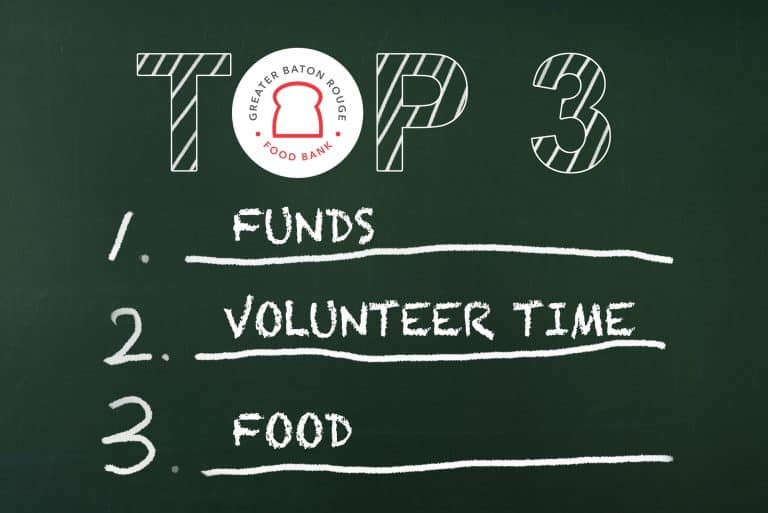Rising Inflation Hitting Families Hard
It seems as if the main topic of discussion in every Louisiana workplace, home and grocery store these days revolves around the frustrations of increasing gas and food prices. The pain and stress of inflation have seemingly hit every resident of the state. And as prices rise, so does the community’s need for assistance from food banks.
“When you start talking about inflation and increasing gasoline prices, you’re talking about a direct impact on the people we serve,” said Mike Manning, President and CEO of The Greater Baton Rouge Food Bank. “It’s going to be a challenge moving forward.”
Food prices are soaring nationwide due to supply chain issues and disruptions. With low inventories and increased demand, a perfect storm of economic inflation forms and wreaks havoc on the country. From young to old, everyone is affected.
Stores across the country are limiting customers’ ability to purchase baby formula, and food banks are seeing even fewer donations of this vital product. Meanwhile in Louisiana, we lead the nation with 1 in 4 children being food insecure. Summertime exemplifies this sad statistic, as children are out of school and may not have access to consistent, healthy meals for a couple months.
And yet, children aren’t the only ones who may face this tragic reality.
“Seniors are not increasing their fixed income to keep pace with inflation. They are already dealing with that, and then they have to deal with the cost of prescription medicine that is increasing,” said Manning.
Food banks, like The Greater Baton Rouge Food Bank, will inevitably be seeing food lines grow longer. However, food banks are not exempt from these economic struggles either.
Local stores cannot donate to the Food Bank like they have in the past due to supply shortages. In addition, traditional bulk food buying processes are less plentiful and more expensive due to higher demands. As far as USDA government programs for food banks go, the decline of the pandemic has led to the disappearance of many emergency food assistance programs.
On top of this all, fuel has hit record high prices. Individuals are having to spend more money on commuting before feeding themselves and their families. This also affects the Food Bank firsthand.
“From a fuel cost perspective, our trucks are all diesel. So, we have to pay a diesel premium on top of what everyone else is facing,” said Manning. “We’re seeing an increased cost of bringing food in and an increasing cost of distributing food. So, for us personally, we’re facing the same challenges that many individuals are when it comes to the fuel cost.”
These factors undoubtedly create a turbulent cycle for those experiencing food insecurity. These families, like many in America, are doing their best while the economy recovers. Monetary donations to the Food Bank have proven to have the most significant impact in helping those in need.
“We look to our community every time we face something. Whether it be the flood in our facility or a disaster, we look to our community to help us,” Manning said. “The people in our area who are food insecure, who are increasingly food insecure, are going to be looking to us. And we’re going to be looking to our community.”

